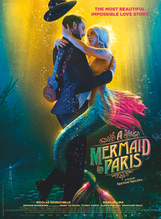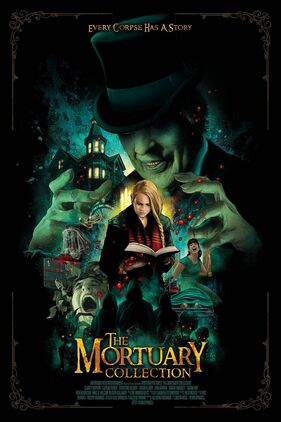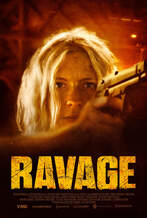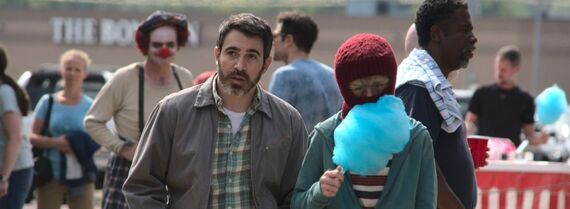|
Originally published on Elements of Madness Director Jeremy Sims brings together the talents of Sam Neill, Michael Caton, and Miranda Richardson in Rams, his English-language remake of the 2015 Icelandic film, Hrútar. Rams centers around feuding brothers Colin and Les Grimurson (Neill and Caton, respectively), who have been engaged in a silent-treatment standoff for decades as they keep separate flocks of sheep on opposite sides of their family land. After Les wins the local ram judging contest, Colin and the local vet, Kat (Richardson), make a life-altering discovery. Les’s prize-winning ram is infected with Ovine Johne’s disease, a deadly bacterial disease that could easily wipe out all the local herds. The community’s agricultural department orders all farmers in the area to eliminate their flocks and undergo extreme decontamination procedures, effectively destroying the town’s main source of income. While Les responds by lashing out in drunken rages, Colin devises a secret plan to hold on to his family’s specially bred sheep for a little while longer. At the risk of losing the things they love most, Colin and Les must figure out how to reconcile their differences in the face of unexpected changes and grief.
0 Comments
★★★★☆ When it comes to fantasy, I’ve always been most drawn to stories that emphasize the element of escape; stories in which the setting is not just a magical world, but a world that is within reach of our own reality. There’s something almost seductive about stories like The Lion, the Witch, and the Wardrobe, Peter Pan, or A Wrinkle in Time in which the characters just happen to stumble upon a wondrous world that’s only a flight away or behind the thin wooden back of a wardrobe. The idea that Narnia and Neverland could exist alongside reality endows my own world with a rich and thrilling potential energy. This is the sort of thrill I experienced while watching Martin Krejcí’s feature directorial debut, The True Adventures of Wolfboy, a delightful coming-of-age drama that combines the fantastical visual style of Tim Burton’s Big Fish (2003) with the adventurousness of timeless teen classics like Stand by Me (1986). Although the hero of the story, Paul, (Jaeden Martell) never actually crosses over into another world, and all of his adventures could, in theory, take place in our present reality, his journey exudes such heroic grandeur and wide-eyed fantastical wonder that it captures the thrill of a fantasyland just waiting to be discovered behind a door or down a rabbit hole.
Originally published on Elements of Madness  Multi-talented writer and director Mathias Malzieu, who is known for his success as a novelist and musician as well as filmmaker, returns to this year’s virtual Fantasia Film Festival with a delightful grown-up fairytale. Malzieu’s previous animated film, Jack and the Cuckoo-Clock Heart, which he co-directed with Stéphane Berla, was featured at the festival in 2014. This year, his live action A Mermaid in Paris captures the charm and adventurousness of an animated feature and recalls the hopeful optimism of childhood with a romantic fantasy story. The film’s plot is unashamedly straightforward and simple, borrowing from familiar mermaid mythology and popular romance movie formulas, but it places this tale on a fantastical and colorful backdrop that makes the predictable story seem fresh and heartfelt. Originally published on Elements of Madness  The word “nightmarish” is one of those terms frequently thrown around when describing horror films. While the jump-scares, villains, and gore of the horror genre can certainly haunt us in our sleep, oftentimes, the plots of horror movies are quite meticulously designed and follow a much more logical story than real nightmares. Despite their terrifying nature, narrative horror films make much more sense, and are therefore much easier to follow, than our dreams. Unless you have some higher form of subconsciousness that employs a team of award-winning writers to plan out your dreams, real nightmares are so bizarre, fragmented, and convoluted that they probably wouldn’t bring in a lot of cash at the box office. While most horror movies don’t accurately represent the experience of a nightmare, anthology horror films can come pretty close. Just like a nightmare that pulls your mind back and forth among a hodgepodge of strange and unlikely situations, even tricking you into thinking you are someone else for a while, anthology films guide us through a series of loosely-connected and bizarre short stories. These stories, like a nightmare, frequently switch protagonists and force our minds to work harder to make connections between everything we are seeing. In that sense, writer/director Ryan Spindell’s feature debut, The Mortuary Collection, is a nightmarish anthology horror film. Screening at the Fantasia International Film Festival, The Mortuary Collection is both a tribute to classic cinema and a unique creation of its own. Originally published on Elements of Madness  Anyone familiar with rape-revenge films knows that the formula for this horror sub-genre can be particularly tricky. While the genre continually offers up new ways for audiences to process and discuss trauma, rape-revenge films can be quite problematic when not handled correctly. Writer/director Teddy Grennan’s latest film, Ravage, thankfully avoids one of the most common and offensive clichés of the genre: sexualizing the protagonist as a victim of violence and trauma. Unfortunately, however, Ravage also manages to create new problems of its own. |
"Our embodied spectator, possibly perverse in her fantasies and diverse in her experience, possesses agency...finally, she must now be held accountable for it." Categories
All
|


